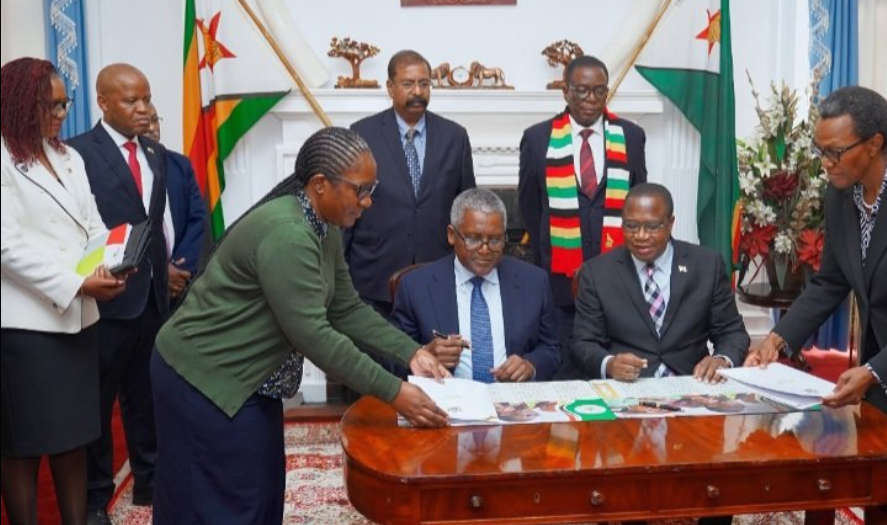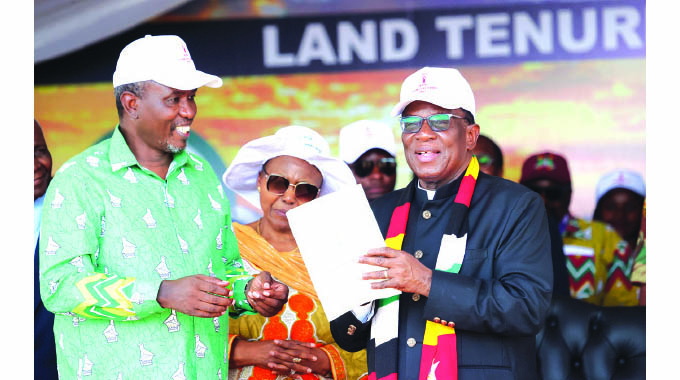The International Monetary Fund (IMF) has called on the Zimbabwean government to close its significant 2025 fiscal financing gap using sustainable and non-inflationary methods, warning against printing money or accumulating further domestic arrears. The call came at the conclusion of a mission led by IMF official Wojciech Maliszewski under the 2025 Article IV Consultation, which ended on June 18.
In a statement issued at the end of the visit, Maliszewski urged authorities in Harare to protect social spending while enforcing long-term fiscal discipline, underscoring the need for stronger public financial management, budget credibility, and improved economic governance.
"Closing the substantial fiscal financing gap for 2025 must be done in a sustainable manner," said Maliszewski. "This requires rationalised spending, effective cash budgeting, stronger political commitment to control expenditures, and a more robust commitment control system to avoid future arrears accumulation."
The IMF also emphasised the need for close monitoring and auditing of existing domestic arrears and said the upcoming 2026 Budget would be crucial in establishing a credible policy track record.
On the monetary and foreign exchange front, the IMF recommended a shift toward a more stable national currency backed by a credible policy framework and market-determined exchange rates. The Fund advised the Reserve Bank of Zimbabwe (RBZ) to enhance transparency in the functioning of the Willing-Buyer Willing-Seller (WBWS) foreign exchange market and gradually replace surrender requirements with direct conversion of export proceeds through Authorised Dealers.
"The RBZ should focus its interventions solely on managing excessive volatility," Maliszewski said, adding that monetary policy would benefit from the introduction of an effective deposit facility and indirect market instruments, while phasing out direct controls.
The IMF backed Zimbabwe's stated plan to transition to a mono-currency system based on the Zimbabwe Gold (ZiG) currency by 2030. It urged authorities to foster domestic demand for ZiG—particularly by increasing Treasury operations in the currency—and to ensure clear communication about the transition.
"Mono-currency use should be confined to domestic transactions, while allowing bank deposits to remain available in both ZiG and USD," the mission said.
Concerns were also raised over governance issues related to state institutions, particularly the Mutapa Investment Fund. The IMF called for enhanced oversight, transparency, regular audits, and public reporting for the fund, as well as across other public sector entities.
The Fund reiterated that while Zimbabwe continues to receive policy guidance and technical assistance, it remains ineligible for financial support due to its unsustainable debt situation and outstanding external arrears. IMF support, officials said, hinges on a credible pathway to comprehensive debt restructuring and the clearance of arrears, supported by reforms to restore macroeconomic stability and promote inclusive growth.
"Reengagement with the international community remains critical," Maliszewski concluded. "The Structured Dialogue Platform is a key element in Zimbabwe's pursuit of debt sustainability and access to concessional financing."
The IMF said it stands ready to resume discussions on a Staff-Monitored Programme (SMP) once Zimbabwe demonstrates meaningful progress on key reforms.
- online
 Zimbabwe launches new airline
Zimbabwe launches new airline  Hichilema meets Chivayo
Hichilema meets Chivayo  Millions celebrate Diwali festival in India
Millions celebrate Diwali festival in India  SA bitcoin firm mulls Zimbabwe listing
SA bitcoin firm mulls Zimbabwe listing  Gold edges up as traders await guidance
Gold edges up as traders await guidance  Airlink applies for Lanseria to Harare, Bulawayo route
Airlink applies for Lanseria to Harare, Bulawayo route  Young Investment Professional (YIP) Graduate Programme 2019
Young Investment Professional (YIP) Graduate Programme 2019 










 Young Investment Professional (YIP) Graduate Programme 2019
Young Investment Professional (YIP) Graduate Programme 2019
Editor's Pick